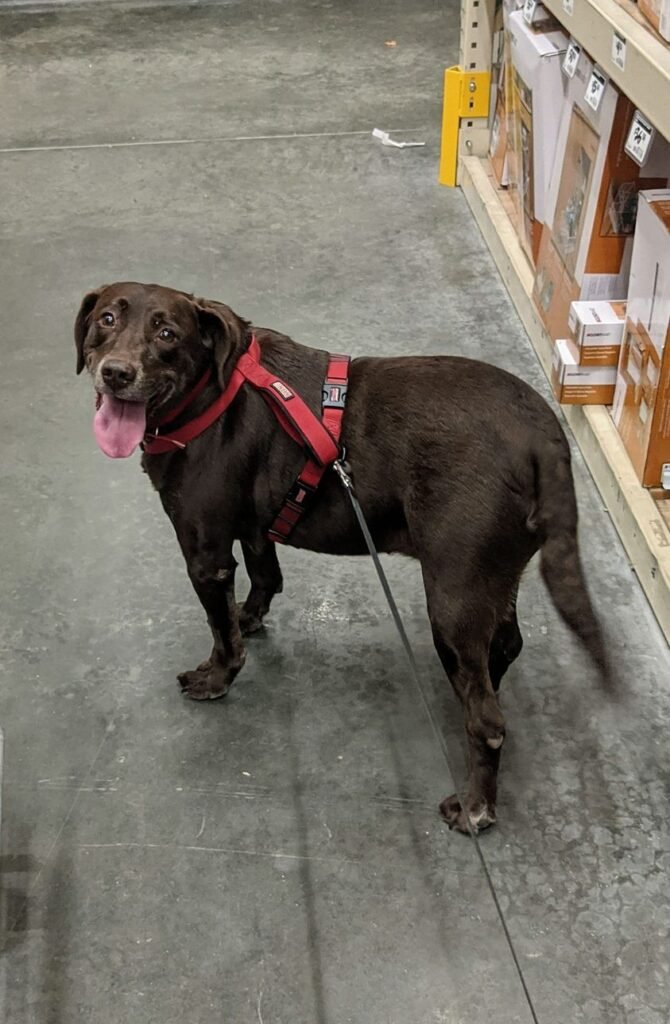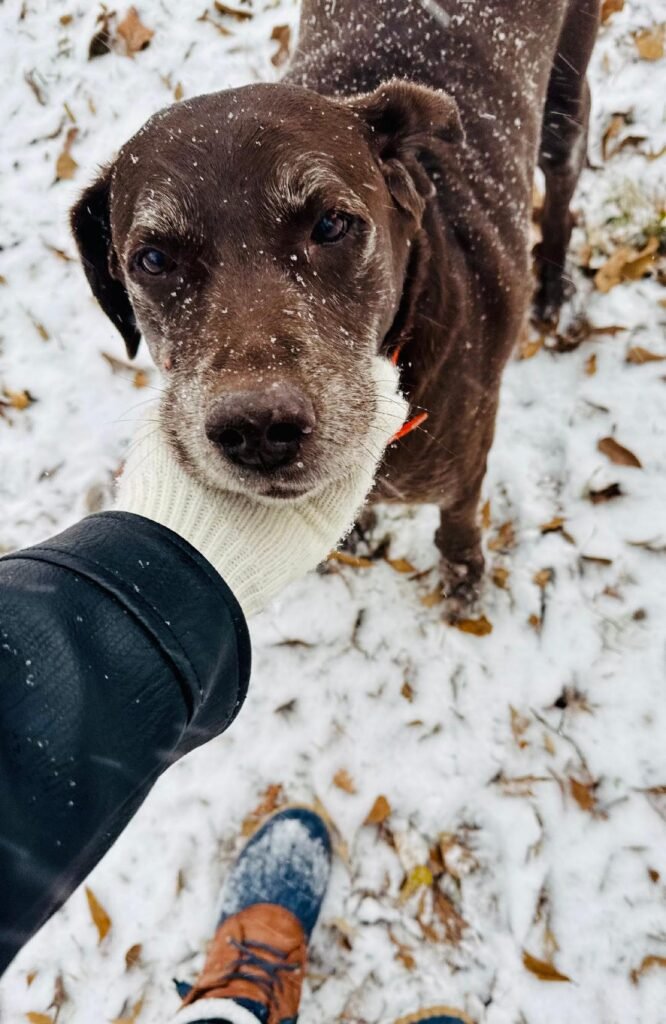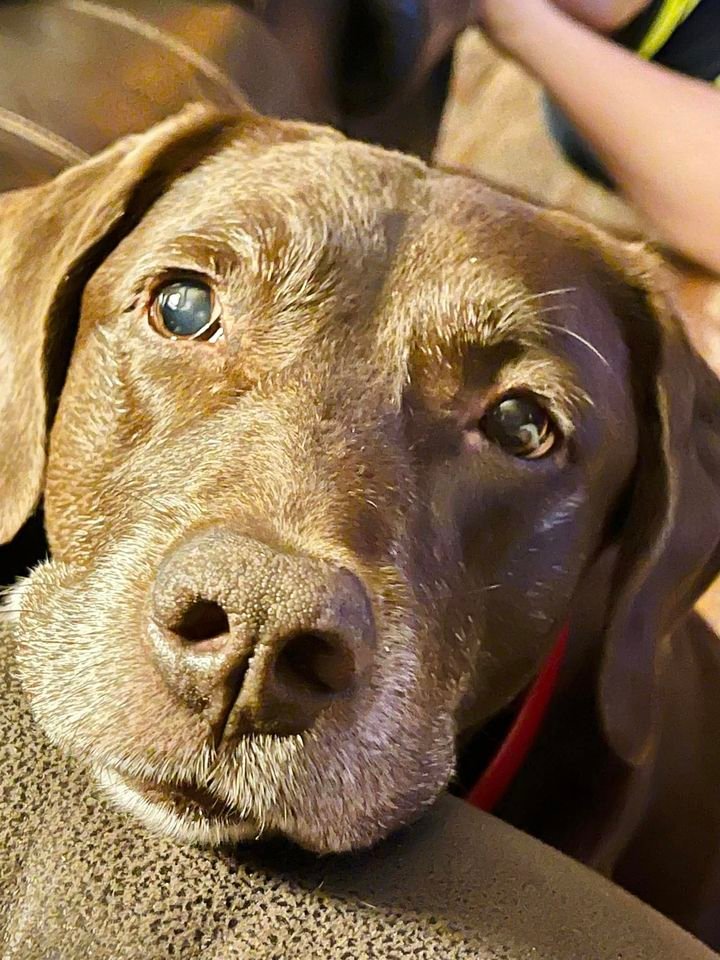I think we can safely agree that American society as a whole is rabid dog lovers. Perhaps not as open-minded as Germany, who reportedly take great pride in its animals and are open to dogs being a part of everyday life. I’ve always held a firm belief that owning a dog is more therapeutic than any drug prescribed for anxiety or depression.
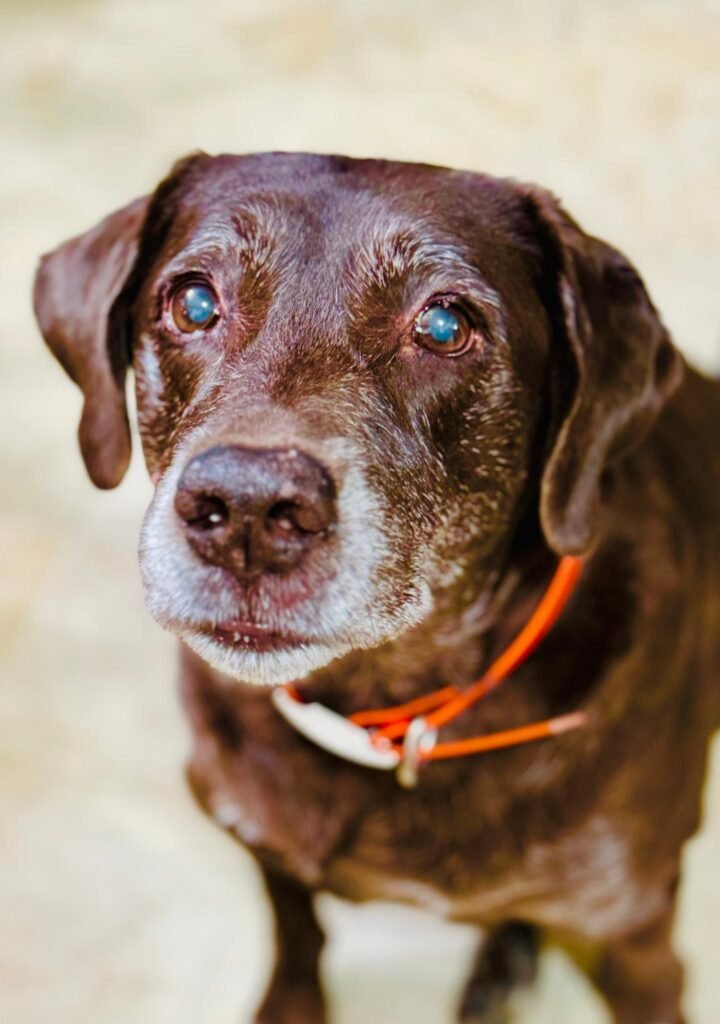
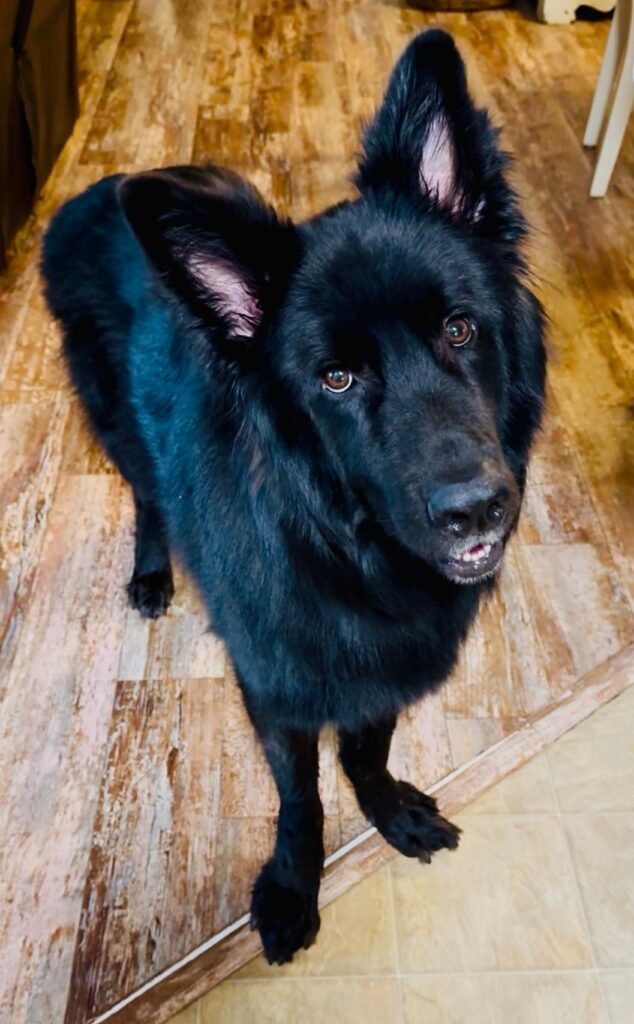
I also subscribe to the thought of “if my dog dislikes you, I probably will to”. Which, let’s face it, is pretty unfair of me. I don’t trust you if you dislike my dog, but I totally trust my dog when they dislike you. I think many of us feel this way, whether it’s wrong or right. We could be here all day arguing this kind of thinking and how I’m probably in the wrong. But that’s a problem for another day.
There’s one aspect of dog ownership that we don’t often talk about, and that’s losing them. This tip-toes into the territory of whether dogs are seen as simple pets or members of the family. I will probably be judged for this, but my dog, Lexi, had become my family. Losing her three months ago triggered a grief in me that rivaled that of losing my father and my grandparents. If I’m being honest, I’m still grieving her abrupt loss. Some will call this misplaced sentiment and misdirected priorities. Let me explain the feeling behind this.
Understanding the Depth of the Bond
Firstly, let me begin by saying that Psychology acknowledges pet bereavement as a legitimate occurrence. Many do not comprehend why this would be. How could you place your pet on the same level as your human loved ones?
ATTACHMENT CONCEPT
You build strong emotional bonds with your pet through daily interactions with them. Between feeding, walking, grooming, and routine, they become a deep-seated part of your life. It is easy to become attached to them when they provide unconditional love. They (mostly) don’t judge you. Lexi judged me if I didn’t share a cheeseburger with her, but I could live with that. Otherwise, she accepted me irrevocably.
EMOTIONAL REFUGE AND PILLAR
I have always been a strong believer in the concept that ‘actions speak louder than words’. Our canine companions provide comfort wordlessly. They sense your emotions better than fellow humans and often offer aid and support when needed. My Lexi was present for a lot of difficult or chaotic times in my life. She always knew when I needed just to hug her or when to lie all 80 LBs of herself on me.

LOYALTY
Many dogs are willing to stand by you no matter the situation and often give their lives to protect humans. My own dogs have kept me safe from harm (real or perceived) more times than I could count. As a seven-year-old child, my aunt lived next door and her Labrador/Shepherd mix, Terra, would walk with me the block to my step-grandmother’s house. One day, a stray dog charged me and I froze in fear. Terra quickly knocked me to the ground and stood over my body. She attacked the other dog, scaring it off, then returned to check on me. I will never forget the day a dog saved me from a vicious attack, and from that moment, my love for dogs intensified. Lexi was no different. She followed me anywhere and she quietly placed herself between me and strangers to watch them as my guardian. I couldn’t go anywhere without her by my side—even to the restroom—and even in her old age, with arthritis, she never left my side.
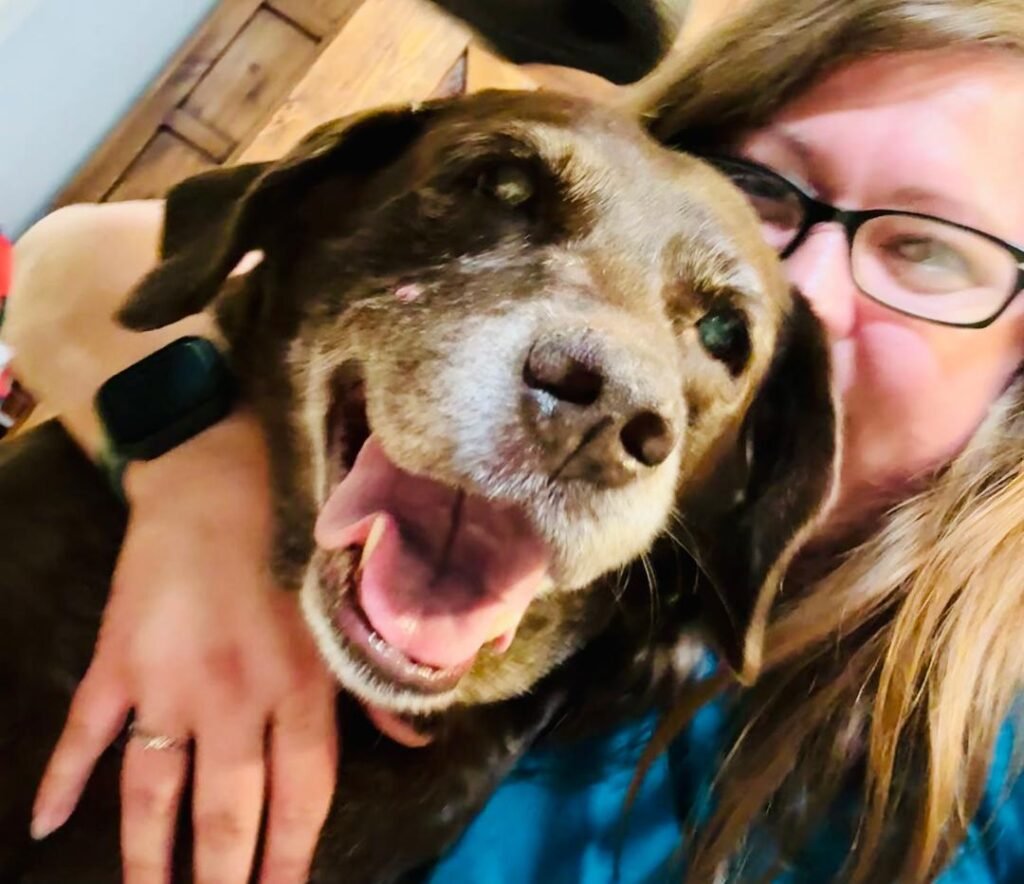
Stages of Grief
For those of you not in psychology know, there are five stages of grief recognized: denial, anger, bargaining, depression, and acceptance. These stages are subject to recurrence, overlap, and change with each individual experiencing them. For me, they went something like this:
- Denial—I would hear her walking across the hardwood floors in my sleep and wake up looking for her. I sometimes would wake, telling myself her death was a nightmare, not my reality. I caught myself stopping while walking our younger dog on his leash for her to catch up—just to remember that she was no longer there, trailing behind me as my constant shadow.
- Anger—I left her in the care of our veterinarian and they kept her overnight in a kennel, stating that they’d given her medicine for a blockage and that she was in good hands. The next morning, I got a call that she’d passed overnight. Alone. I was so angry at the vet and myself for leaving her there.
- Bargaining— If I’d only gone against the vet and brought her back home that night, she wouldn’t have died alone. If I’d noticed something wrong—there were no visible signs of an issue until the night before I took her to the vet—then maybe I could have prevented it. This stage is often when we try to undo something that cannot be undone.
- Depression—Waking in the morning and not having her there to greet me. Having to use a leash for our younger dog when Lexi had been able to go leash-less. Going to work on my laptop and not having her at my feet. Not having her lead me to the pantry where her treats were kept at treat time. Seeing my son play without his protective fur sister hovering nearby. Not tucking her in on her dog bed at night. There were a lot of moments of each day that reminded me she was gone and every single one was a blow to my mental health. I was afloat in a sea of depression and uncertainty. More than a decade of her presence….the loss of her left me bereft and lost.
- Acceptance—This one was a slow process. For several days, I distanced myself from our other dog, Shadow, who was a 75-Lb, 1-year-old German Shepherd/Newfoundland mix. He is bonded with us, but never to the point that he followed me everywhere or showed hyperawareness with our toddler son or did anything because he knew it would please us. In true puppy fashion, he was still rough-and-tumble at times, and was more like a hurricane instead of a soothing balm. I compared him to Lexi and found him lacking while I grieved. It wasn’t fair to him, but as a true canine, he endured that period with grace. As I began to accept her loss, Shadow did something that amazed me. For all of his youth, he began to mature some and his behavior changed towards me and our family. He started paying more attention to our son, and often he started following him around to lie nearby. He started getting on furniture—something he NEVER did before Lexi’s death—to lay his head in our laps. He started spending part of the night on our legs at the foot of the bed. He had previously shown protective instincts towards me and our son at times, but that only grew when he became the only dog. This helped my heart heal a little. I joked with my husband often after getting Shadow as a puppy that Lexi was in retirement and living her Golden Years while it was now Shadow’s job to protect us and our home. After her passing, he took up the mantle as if he understood his role had changed.
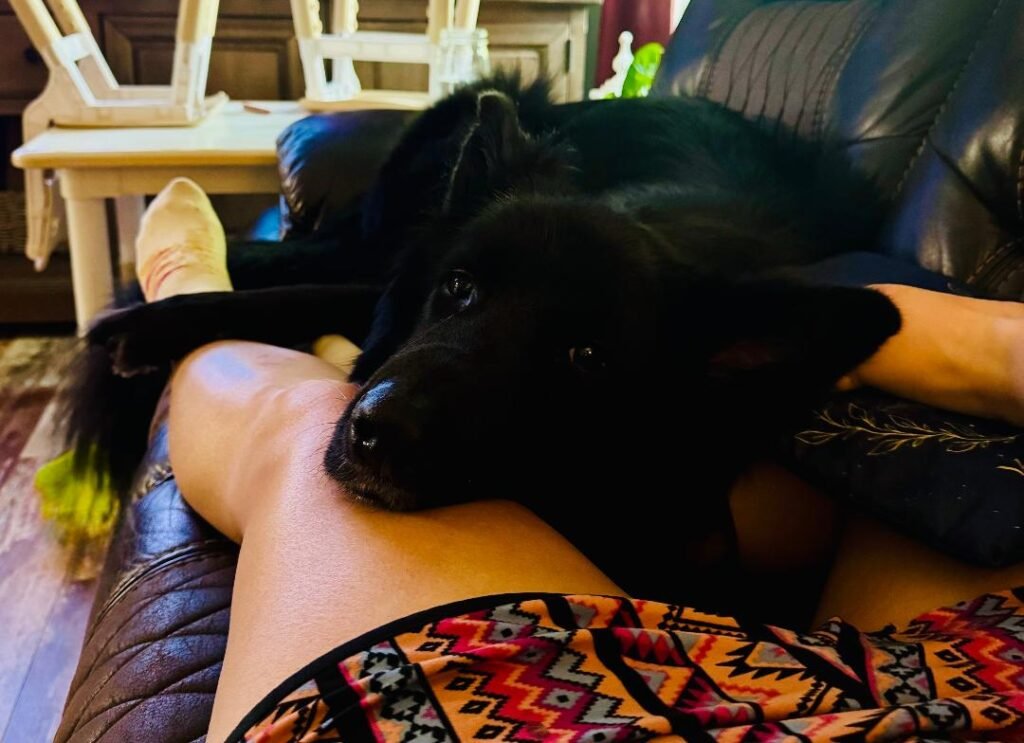
Is it Appropriate to Grieve for a pet like a Human Loved One?
As Lexi advanced in age, when her sight and hearing diminished, and joint pain slowed her down, we spoke of how we wanted her final days to go. We had planned the inevitable end, but that was robbed from us, me especially as she was my dog before I met my husband, married, and had a child.
Some people did not quite understand how I was impacted so heavily by her loss—as if she was a close relative. My closest family and friends, however, knew the blow was substantial to my heart.
There are cultural stigmas that minimize pet loss grief. Many believe it is an insult to our human loved ones to place our pet on the same grief level. I was very open and public with my grief over the loss of Lexi because I’ve never adhered to societal pressures like most, but many are unable to find support or solace in their grief due to disenfranchised grief is defined as “grief that society limits, does not expect, or may not allow a person to express”, according to the American Psychological Association (APA Dictionary of Psychology). The APA goes on to say grief is the anguish experienced after a significant loss and can include responses such as physiological distress, separation anxiety, confusion, yearning, obsessive dwelling on the past, and apprehension about the future. Furthermore, more intense symptoms like disruption of the immune system, self-neglect, and suicidal thoughts can occur. (Grief)
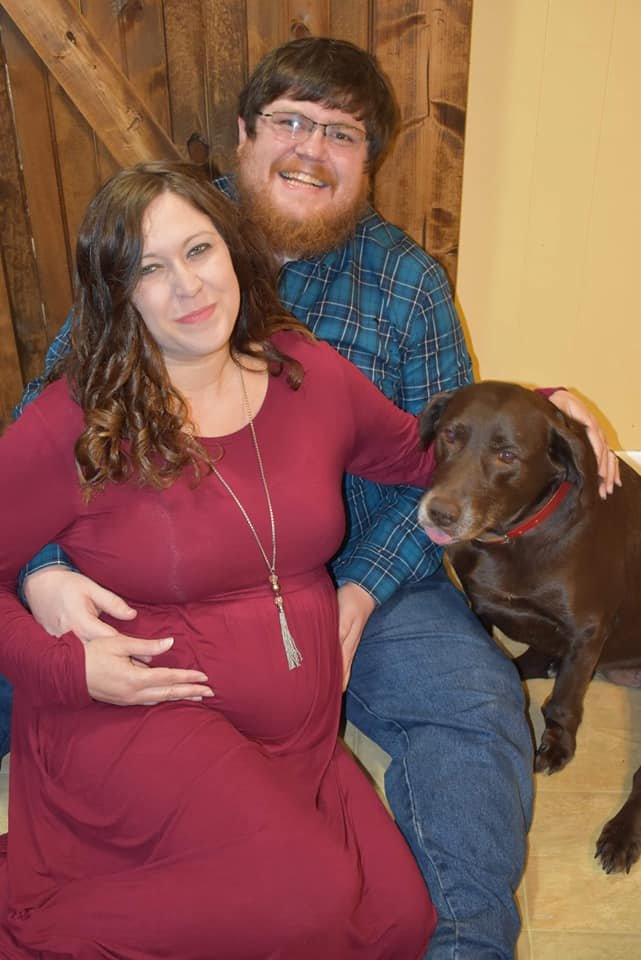
If you experience any of the above, this is real grief. This is not exaggeration or falsified behavior. It is genuine, sincere, and you have every right to feel it. Whether you choose to express your bereavement privately or openly is up to you, but know that there are support groups such as the Association for Pet Loss and Bereavement (APLB) and pet loss grief counselors who can help you navigate your loss. Let no one diminish or discard your feelings.
Honor Your Loss
Some cultures create shrines for their dead, others plant a tree in remembrance, and some hold celebrations of life in their lost loved one’s honor. These practices help facilitate and process grief, and absolutely can help in the case of a lost pet. In terms of coping, there are many things you can do.
Create a memorial: I had Lexi cremated and her ashes sit atop the entertainment center in our living room. I also asked our vet to make a mold of her ‘special paw’ (her left front paw was deformed from birth), and that too is by her ashes. She resides in the heart of our home because her heart was also my home.
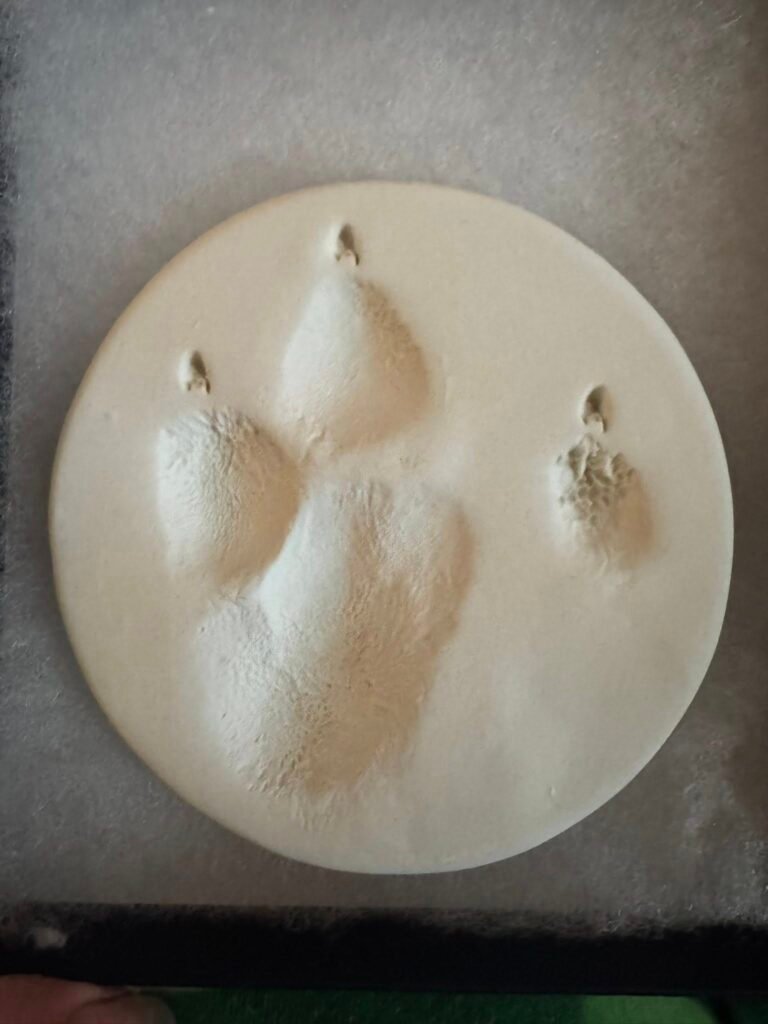
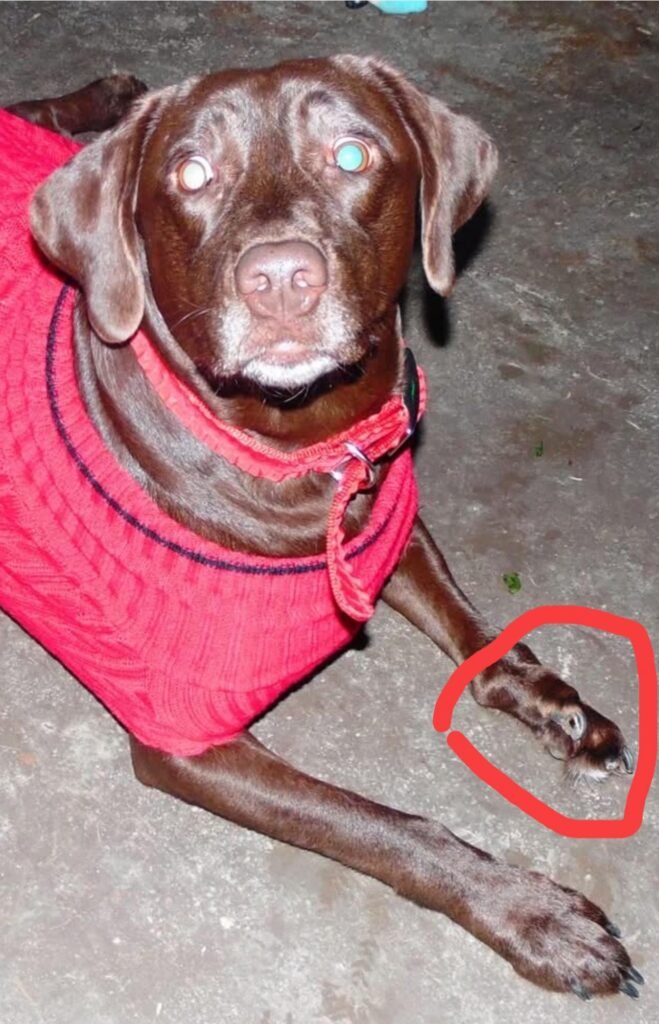
Journal or artwork:
Any creative outlet really helps with grief. There are so many ways we can vent and process strong emotions, from writing to music to gardening to drawing. The mind is a powerful tool and you would be amazed at all the ways it can aid us during difficult times. Writing out a memorial for Lexi helped me tremendously.

Discussions with supportive friends/family or support groups:
I was blessed to have supportive and understanding family and my best friend, who also has an aging dog (our dogs were best friends). I spoke a lot about her in the beginning and cried on multiple shoulders. My Dad was Lexi’s second-favorite person in the world after me, and his tremendous grief over her loss helped me feel not so alone. There are many professionals who can help you in your grief, if you need a little support in your journey.

Give yourself grace and time:
I’m coming up on the 4-month anniversary of her death, so the grief is still quite fresh for me. I still cry at times, I still look at her picture every day, and I think about her all the time. This may appear like I’m dragging out my grief for her longer than what might seem appropriate for the loss of a pet. I remind myself that it will take time—she was a huge part of my life for a third of my life. It was a daily routine and constant connection between us for almost 13 years. She slept in the bed with me, right against me, until I married and still slept at the foot of the bed or lay in my lap until arthritis set in and she could no longer jump (my husband took to lifting her full 80 LBs up onto the bed or my lap at times so we could cuddle). Losing someone you love (2-legged or 4-legged) is a marathon, not a sprint. Don’t rush your grief.

Seek Help
Sometimes our grief gets the better of us. Even the strongest person can be levelled by grief. If you are unable to function in your day-to-day life, if grief persists at a high intensity for several months without relief, if you are struggling with depression or feelings of guilt, trauma, or are emotionally adrift, seek help.
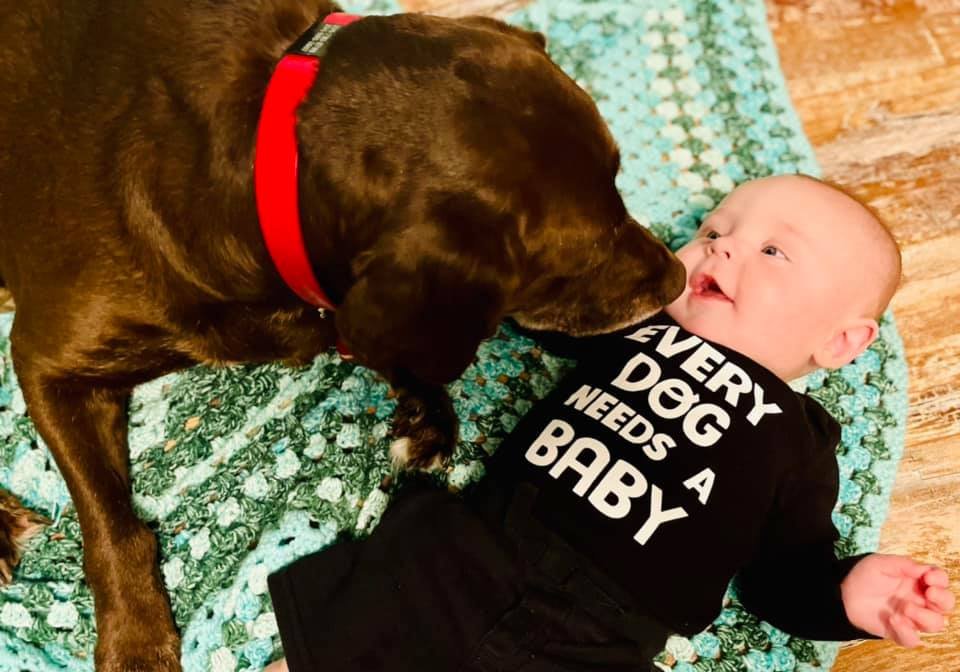
Reach out to family or friends. Reach out to support groups or a counselor. Turn to spiritual leaders. Avoid self-isolation or ignoring pain. The only way to overcome grief is through it, and though loss never goes away, it becomes a burden that is bearable with time. I can now laugh about the silly shenanigans Lexi got into when she was younger without breaking down. I can look at her picture and smile without crying.
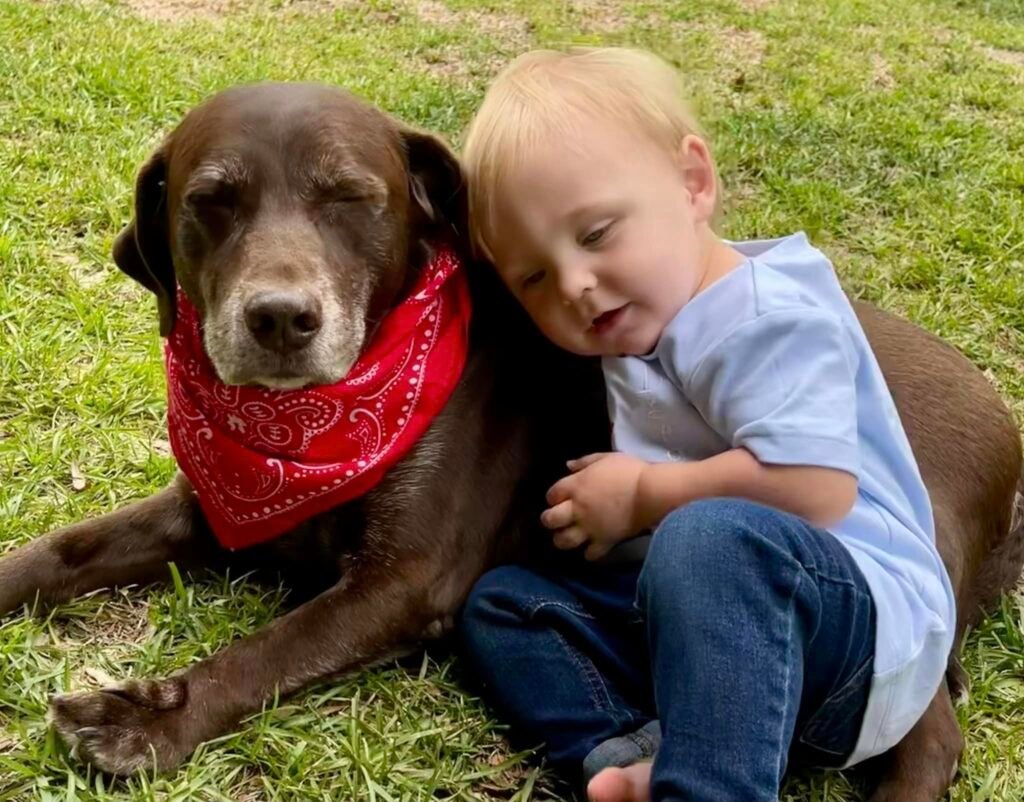
I sometimes still cry when I think of her—I probably will always have these moments because she was imprinted on me and our bond was extraordinarily strong, but I am so grateful I got to love her and be loved by her for 12 years. The depth of our love was special, and it isn’t something that should be trivialized.
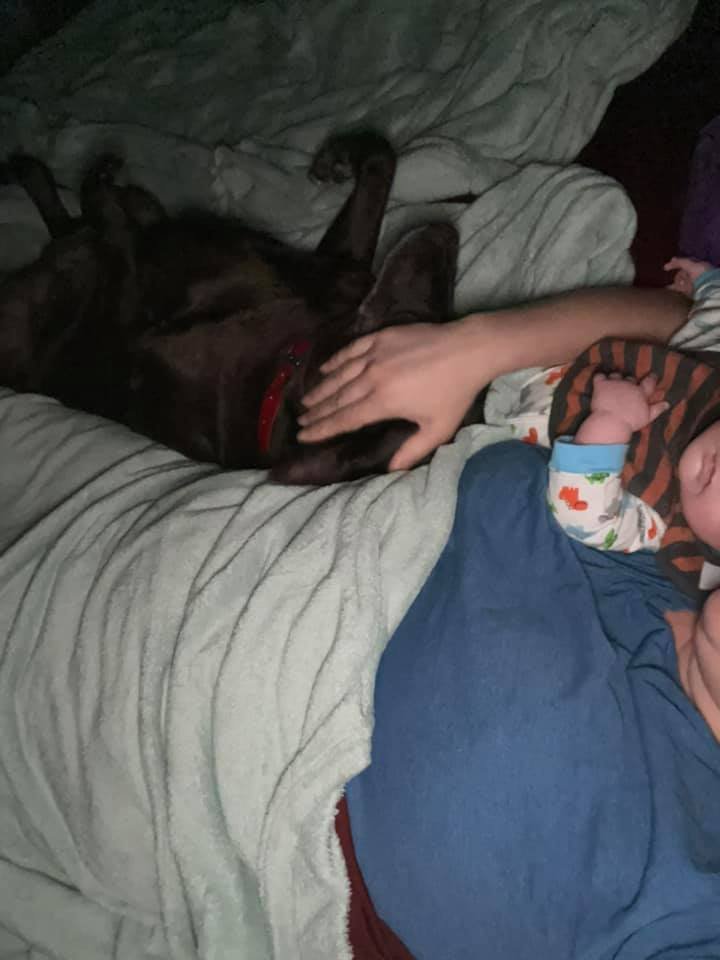
Your loss is real. Your pain is real. The love of a pet—especially a dog—is an honor and one of life’s greatest treasures. Saying goodbye to your beloved pet should be treated with respect and care.
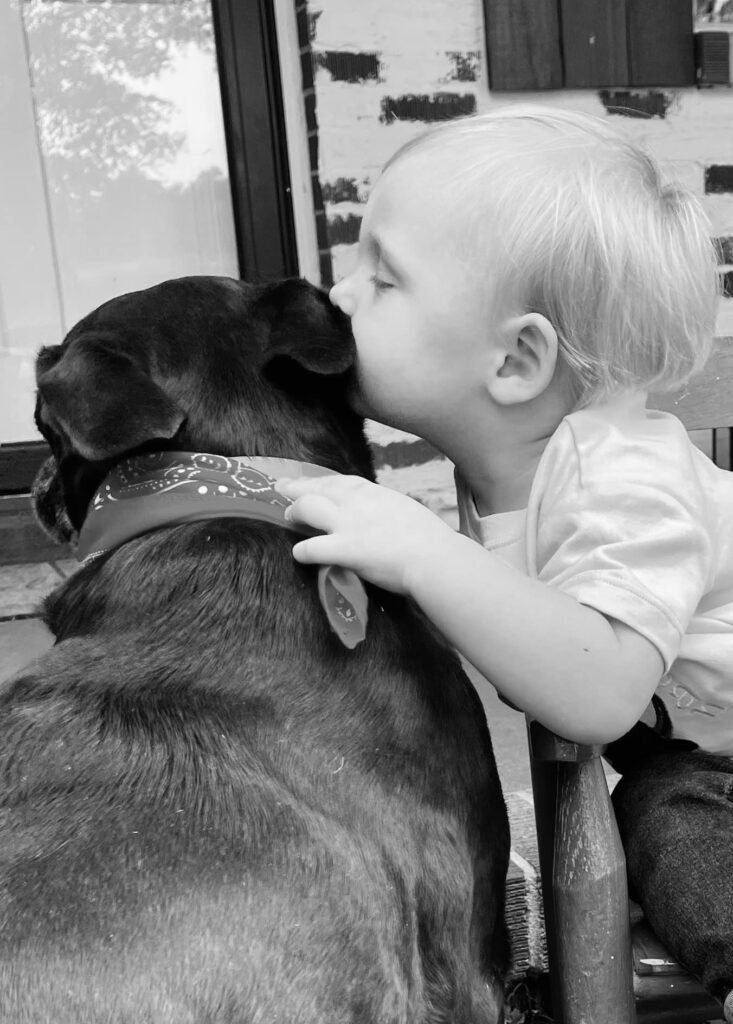
RIP Lexi Nichole, you will always be considered my FURstborn child. Thank you for loving me with your whole heart every day of your life. I will miss you with my whole heart every day of mine.
